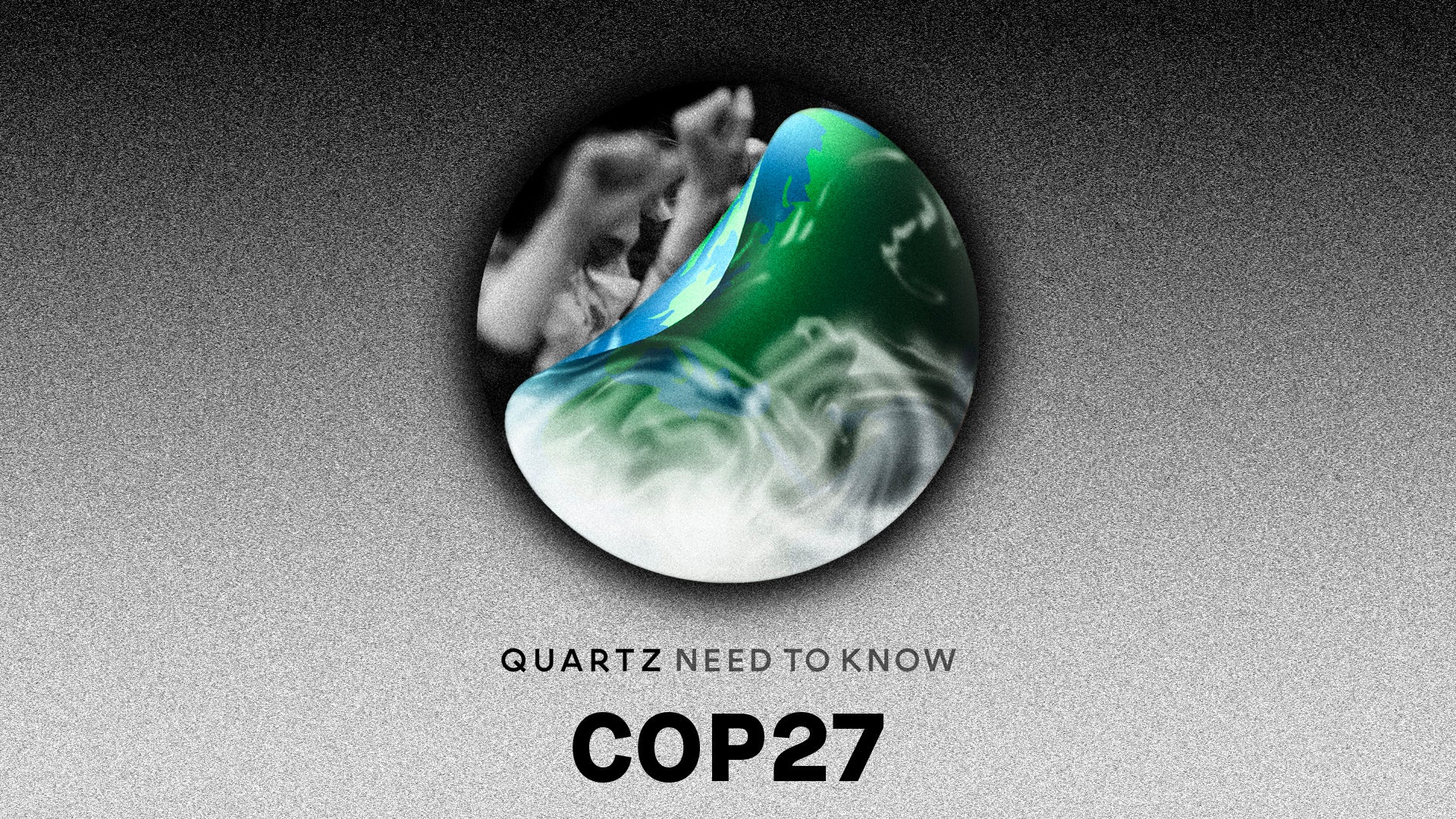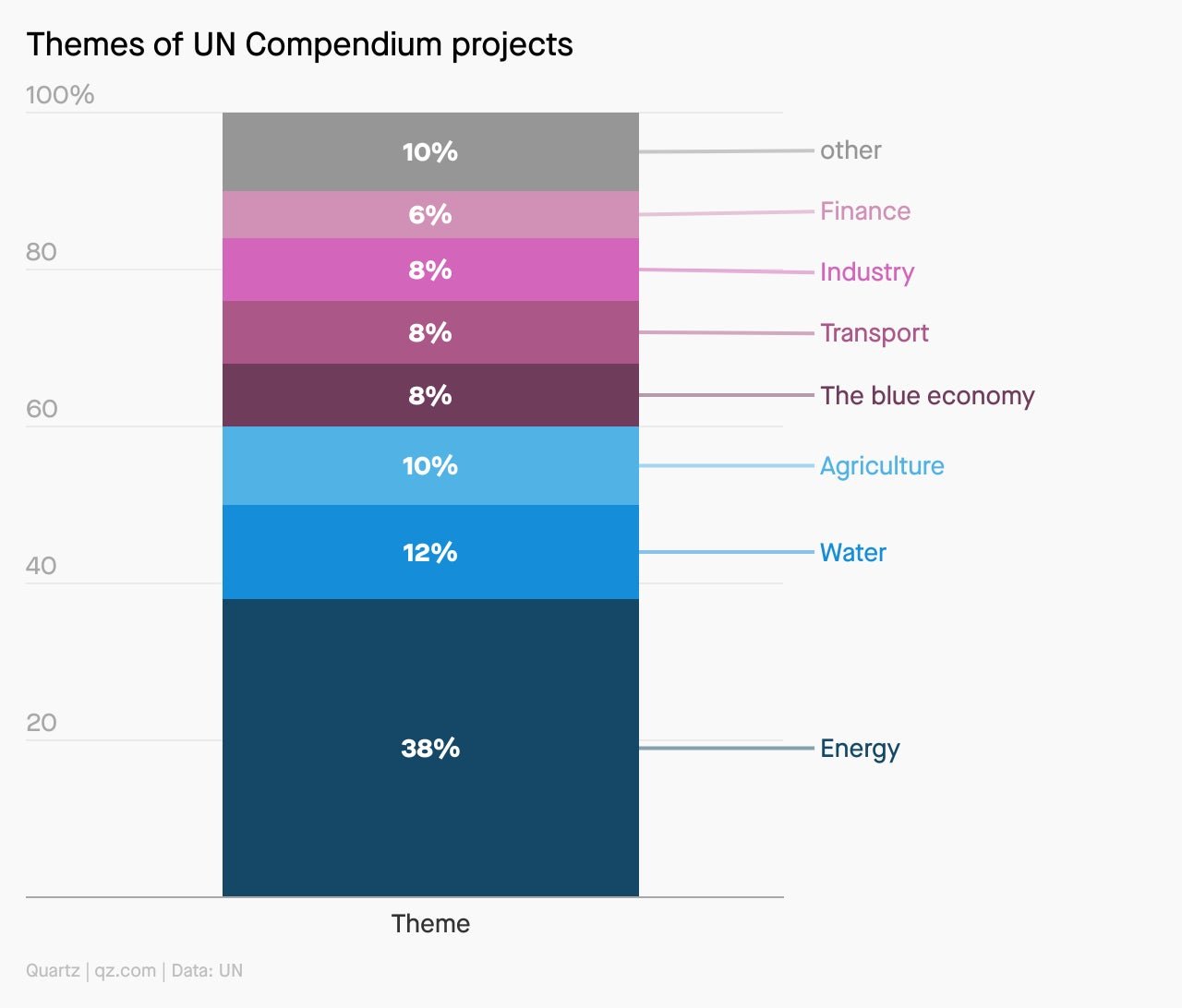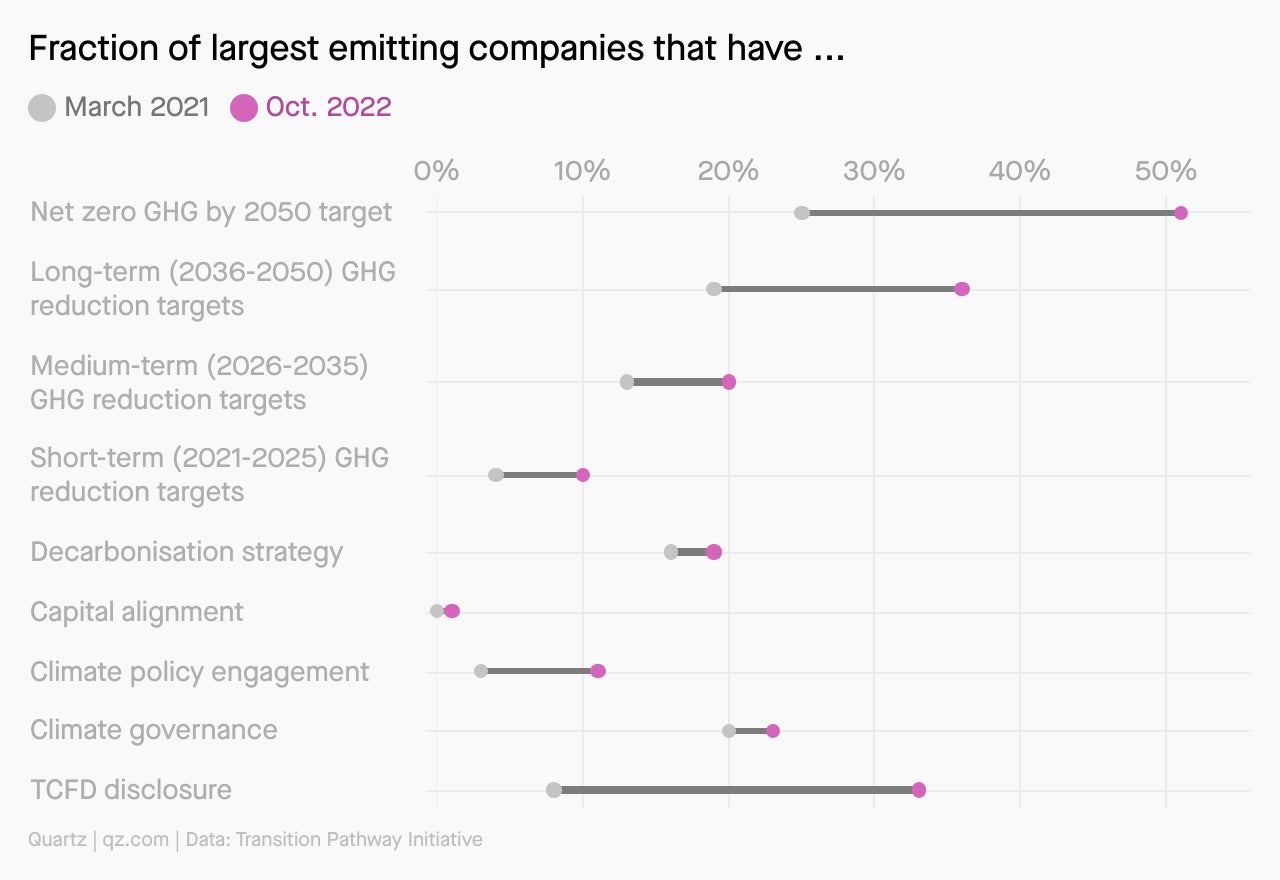COP27: Hello offsets, my old friend
Plus: 50 shovel-ready climate projects that just need… $90 billion.

Hello COP27 delegates and readers,
Carbon offsets, a purported solution to climate change that has been plagued by greenwashing, are making a comeback at COP27.
The idea that companies should pay for credits that match their carbon footprint with reductions achieved elsewhere—via forest conservation, renewable energy farms, or other climate-friendly activities, often in developing countries—received high-profile endorsements this week. Those came not only from Kerry, but from a new coalition of African leaders who want to raise climate adaptation capital that wealthy governments are failing to put up themselves. That’s in spite of a long history of problems with carbon credits that includes shoddy accounting, fraudulent marketing claims, and human rights abuses.
Kerry’s plan aims to create a marketplace through which builders of clean energy projects in developing countries can sell carbon credits to companies abroad that are unable or unwilling to directly reduce their own carbon footprints. This money is “not in lieu of any other financial commitments” the US might make, Kerry emphasized, and fossil fuel companies aren’t eligible to participate. But some carbon market experts are skeptical, given the risk that credits could be double-counted, credit-flipping middlemen might skim profits that should go to communities, and companies may use offsets to delay their own decarbonization efforts.
Kerry’s plan “does not close the door to misleading uses of carbon credits,” said Gilles Dufrasne, lead global carbon markets analyst at the think tank Carbon Market Watch. “More detailed rules are needed to ensure that this new initiative will not serve greenwashing campaigns.”
What to watch for
✊ Will Alaa be released? A press conference on Nov. 8 with Sanaa Seif, sister of jailed dissident Alaa Abd El-Fattah, descended into chaos when a member of Egypt’s parliament stole the mic and had to be removed by UN police. Germany’s Olaf Scholz and other heads of state pressed Abd El-Fattah’s case in private meetings with Egypt’s president Abdel Fattah El-Sisi this week, but there’s no new word on his health condition or if he will be released. Activists plan to wear white to the COP on Thursday in solidarity with Egypt’s political prisoners.
🔧 What new steps will countries take to decarbonize? COP27 is marketed as being all about the “implementation” of national climate plans, but so far there’s been almost no detail on specific new projects. That may change on Nov. 11, earmarked as “decarbonization day,” when new announcements are anticipated about deadlines to phase out petroleum-fueled cars, investments in low-carbon industrial facilities, and other tangible steps. US president Joe Biden will attend for a few hours that day as well, perhaps making announcements of his own.
🍔 Will hangry diplomats sink COP27? COPs are not known for their cuisine. But the fare in Sharm El-Sheikh—scattered croissants, a single burger stand for 30,000 registered attendees—has been sub-par, to the extent it’s available at all. Many food stalls are closed or empty. Even drinking water is in short supply. Most attendees are subsisting on what they pocket from their hotel breakfast buffet, and even heads of state are going hungry. As one delegate tweeted diplomatically, “these conditions are not appropriate for reaching consensus.”
Signs of progress
💸 New commitments for loss and damage: There’s no progress yet on establishing an official fund to pay developing countries for the costs of climate impacts, but there have been a series of announcements by European countries for one-off loss and damage payments, including $5.7 million from Scotland, $10 million from Ireland, $50 million Austria, and $2.5 million from Belgium.
🏗️ Shovel-ready climate projects: There may be a deficit of climate finance, but there’s no shortage of projects that need it. To spur the imaginations of financiers, the UN published a compendium of 50 shovel-ready projects around the world on Nov. 9, from planting climate-resilient crops in Egypt’s Nile Delta to building a battery factory in Serbia. Altogether they need about $90 billion.

Quotable
“We are fighting not only a war, but to make our planet green. Energy security and decarbonization go together. What can Europe do to address its overreliance on Russian energy? They should build more renewables. And we want to be the driving force of decarbonization for Ukraine.”
—Maxim Timchenko, CEO of DTEK, the company that owns and operates much of Ukraine’s electricity system
COP27 is the first COP at which Ukraine has hosted its own pavilion. The stark, enclosed, grey-walled space features a collection of soil samples charred by artillery and a tree trunk studded with shrapnel. In a talk there, Timchenko said that the Russian military has destroyed nearly half the country’s energy infrastructure, and killed nearly 100 of his employees. It’s a huge humanitarian challenge in the immediate term, he said, but an opportunity to rebuild cleaner. The company is sticking to its pre-war commitment to reach net zero no later than 2040.

Egypt’s entrepreneurs are turning to agri-tech
As extreme droughts and flooding affect the balance sheets of many Egyptian farmers, a growing number of local tech startups are launching smartphone-based services to help them manage unpredictable weather and squeeze more profit from struggling crops.
For one family farm in Egypt’s Nile Delta, that meant creating an app that helps growers get better rates on their crops by coordinating with their neighbors. While agriculture-related apps accounted for less than 2% of the $446 million in Egypt’s venture capital funding in 2021, the looming threats of a warming planet and food insecurity are causing more investors to take notice.
Most companies with a climate goal have no plan how to reach it
Committing to reach net zero emissions by mid-century is seen as table stakes for any company wishing to be seen as credible on climate change. Most of the biggest polluters have made that promise. Few have done much to make that promise a reality.

Thanks for reading! We’ll be back in your inbox in a few days with more updates from COP27. Stay tuned.
— Tim McDonnell, climate and energy reporter; Michael J. Coren, deputy editor of climate and emerging industries; Amanda Shendruk, visual journalist; and Morgan Haefner, deputy email editor.